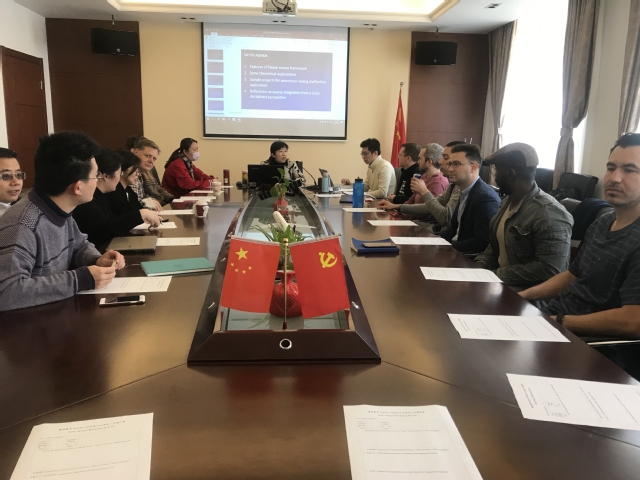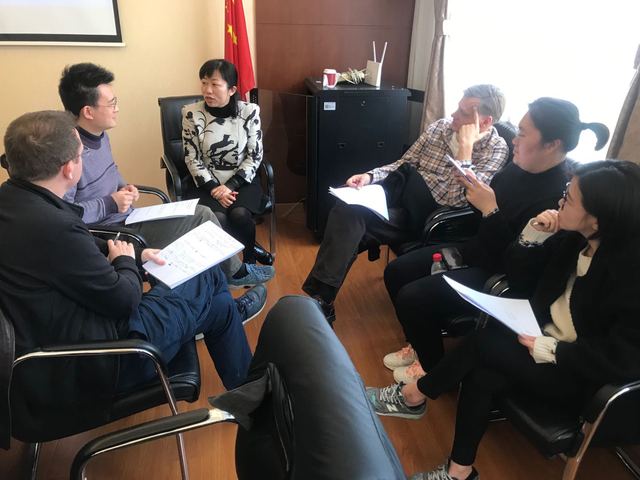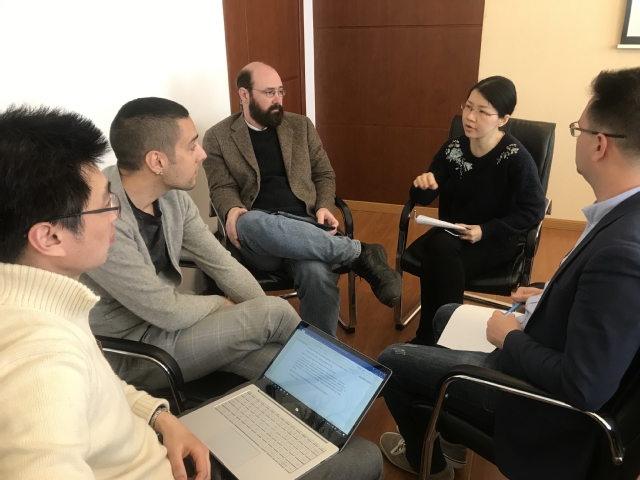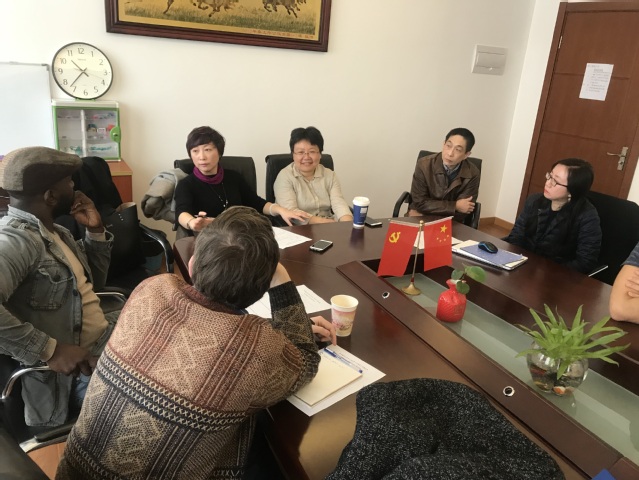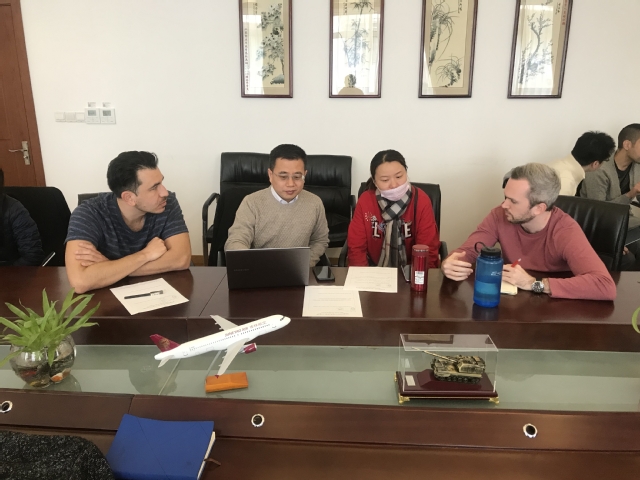Course Integration and Cross-disciplinary Exploration -Report on Haipei Professional Development on March 29, 2019 By Chen Yi All the Haipei academic staff convened on the morning of Friday March 29, 2019 for the spring semester's first professional development session.
Deputy Dean Chen Liqing chaired the session and delivered the main speech. She first outlined the features of Haipei's courses with reference to its various programs. One characteristic of the Haipei course framework is that there is a combination of language courses and subject courses. She then explored the idea of course integration within a diversified and cross-disciplinary framework, which represents the underlining theoretical rationale for such an arrangement in Haipei. After that she showcased an example project at a US Liberal Arts college to further illustrate her point. The creative writing project she cited is of a holistic and integrative nature as it involves teacher-student one-on-one consultation, students researching for their own materials, core book readings in and off classes, teachers' guidance on supplementary materials, the recording of students' storytelling, peer review and discussion in class and eventually students' independent essay writing. The second half of the session featured small-group discussions. The Haipei academic staff were divided into groups and engaged in in-depth discussions on Chen Liqing's presentation and offered their own reflections.
Ben's group presented several ways in which study skills and presentation skills can be integrated via class research projects, the process of which features the practice of paraphrasing, citations and references. The group also suggested that the application of subject course themes in language courses proves to be conducive to course integration and implementation. For example, the Speaking or Writing teacher could ask their students to talk or write about the economic theories they have been studying in their Economics class.
Hao jingjie's group discussed how to dovetail the use of an integrative approach with the right language proficiency level of students and explored the potential of using MOODLE to promote this approach.
Huang Shuang's group mentioned that sometimes students might not have the right mental readiness to link up different courses; to solve this, each term teachers of various subjects could create a theme based on the subjects they are doing so that every course could have this common element of which students could be well aware.
Zhu Yushan's group proposed an envisioned integrative teaching plan. For instance, when the teacher brings up the cultural characteristics in the south of the US in the US Culture class, the Reading teacher could follow up in providing students with corresponding reading materials concerning topics like racial discrimination and segregation while the Listening teacher could have students watch a few classic movie clips on these issues. This professional development session proved to be very fruitful and has enhanced Haipei academic staff's understanding of their teaching practice and shed light on the line of coordination in the future. |

